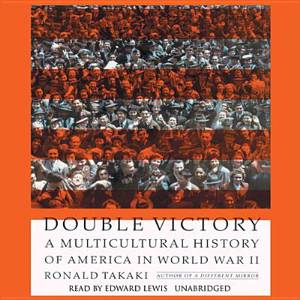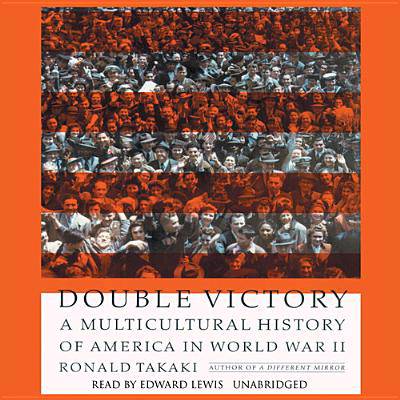
- Afhalen na 1 uur in een winkel met voorraad
- Gratis thuislevering in België vanaf € 30
- Ruim aanbod met 7 miljoen producten
- Afhalen na 1 uur in een winkel met voorraad
- Gratis thuislevering in België vanaf € 30
- Ruim aanbod met 7 miljoen producten
Zoeken
Double Victory LUISTERBOEK
A Multicultural History of America in World War II
Ronald Takaki
CD | Engels
€ 43,45
+ 86 punten
Uitvoering
Omschrijving
In Double Victory, a broad spectrum of American voices emerges to illustrate the country's multicultural struggles and victories during World War II. We hear from a Japanese-American at an internment camp; a Native American code breaker using the Navajo language for the first time; a Mexican-American woman, "Rosarita, the riveter," who was able to work a job during wartime other than as a housecleaner or a maid. Takaki also considers the racial biases that influenced important American government actions during the war, like the bombing of Hiroshima and the refusal to admit Jews into the US. Double Victory clearly demonstrates that World War II helped to transform American society and advance the cause of multiculturalism throughout the country.
Specificaties
Betrokkenen
- Auteur(s):
- Uitgeverij:
Inhoud
- Taal:
- Engels
Eigenschappen
- Productcode (EAN):
- 9781470890261
- Verschijningsdatum:
- 1/07/2013
- Uitvoering:
- CD
- Formaat:
- CD standaard audioformaat

Alleen bij Standaard Boekhandel
+ 86 punten op je klantenkaart van Standaard Boekhandel
Beoordelingen
We publiceren alleen reviews die voldoen aan de voorwaarden voor reviews. Bekijk onze voorwaarden voor reviews.











